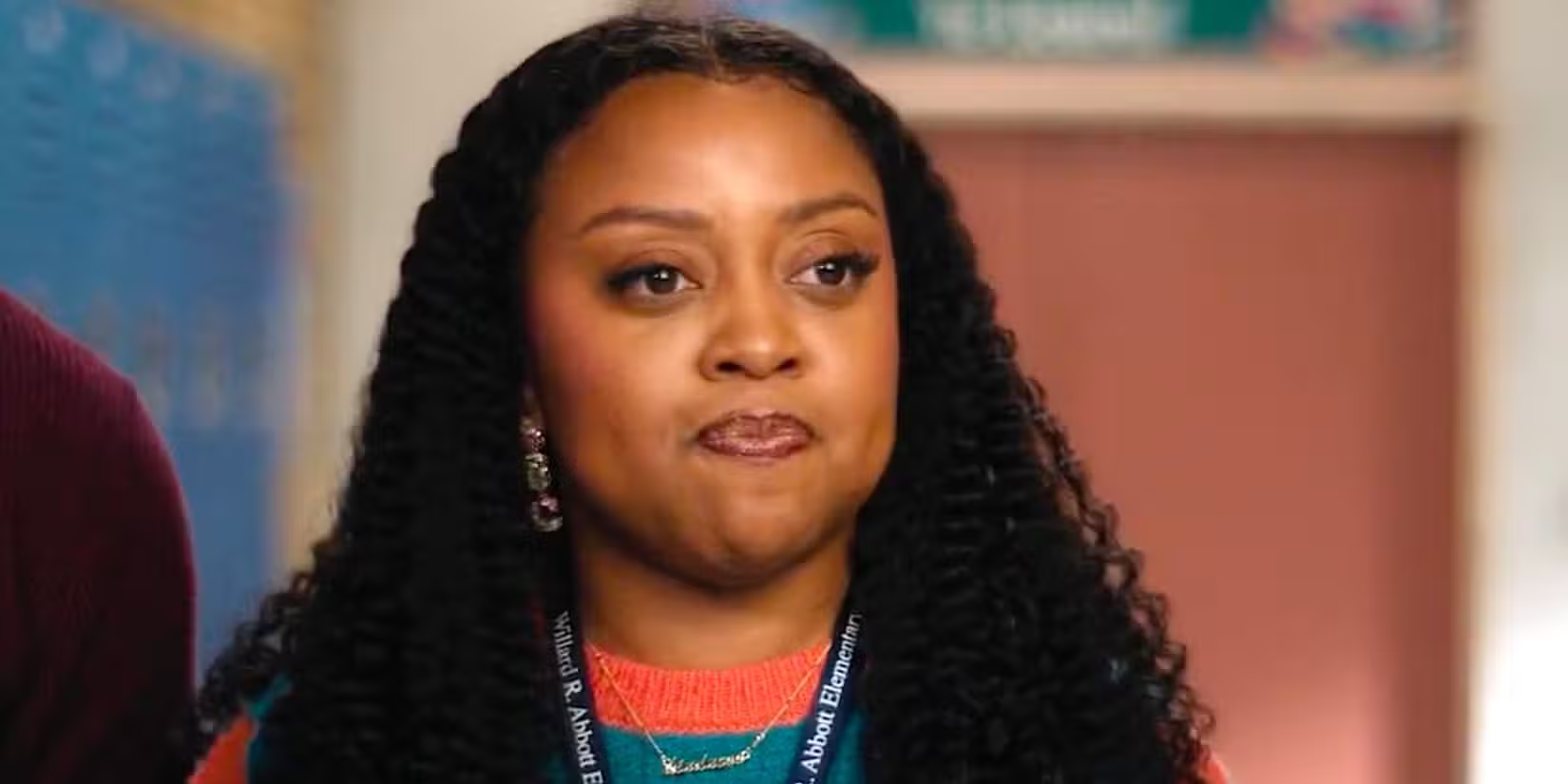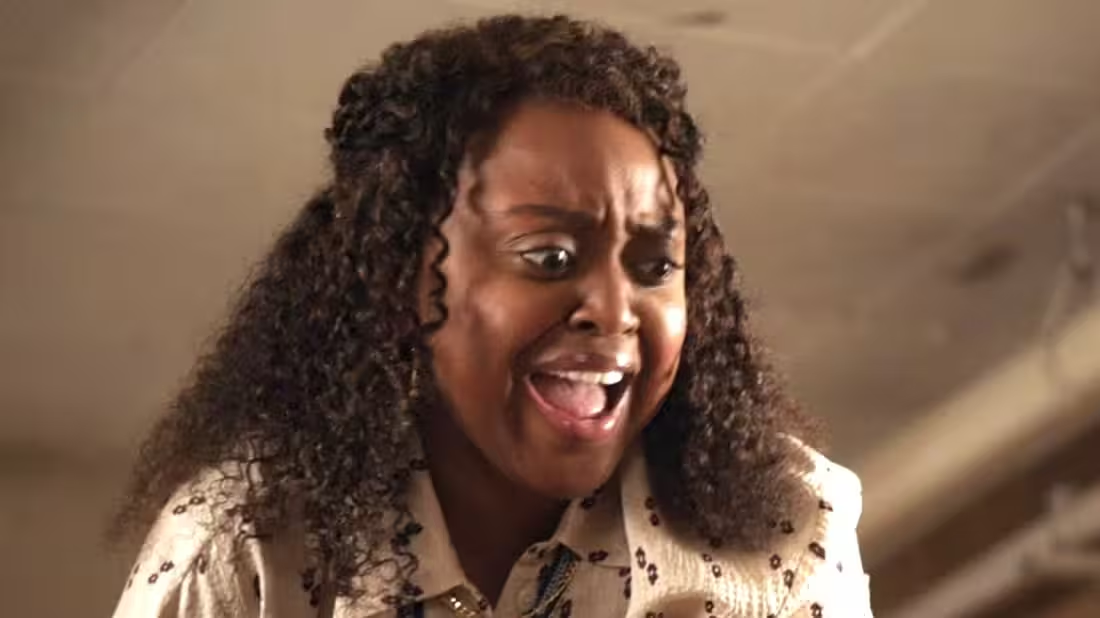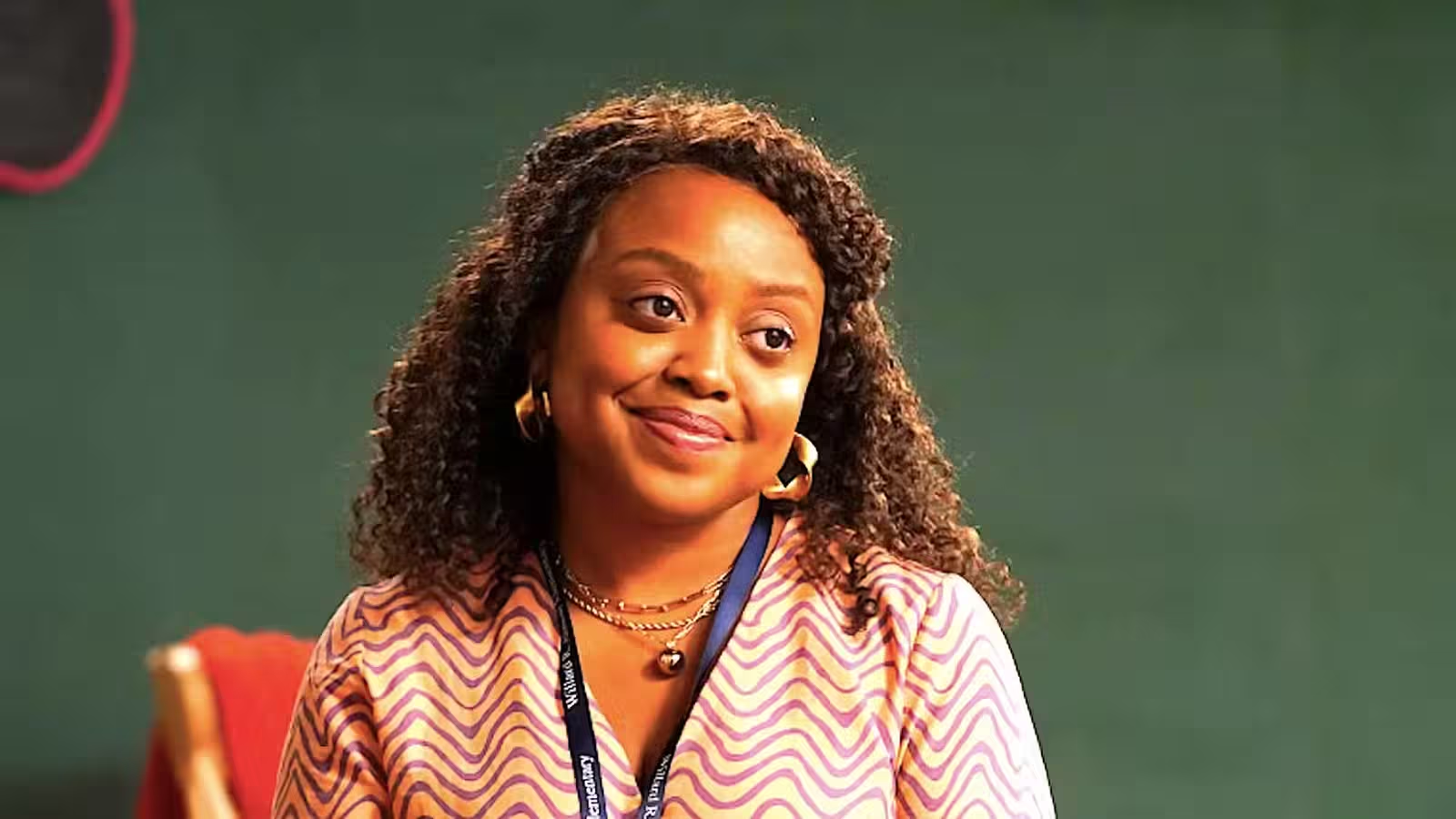8 Minutes
Introduction: A surprising tonal shift that reshaped the show's future
Abbott Elementary has long balanced laugh-out-loud mockumentary comedy with tender, character-driven storytelling. For three seasons, Quinta Brunson’s Janine Teagues anchored the series — her optimism, messy romance with Gregory, and unshakeable idealism made her the emotional center. Season 3 teased a natural next chapter: Janine taking a district fellowship that could lead to an off-screen promotion and a graceful exit from the school. But season 4 pulled a fast one. The spotlight shifted to Janelle James’s Principal Ava, and a high-stakes scandal changed the show's internal landscape, effectively shutting down Janine’s most plausible departure route.
Plot summary: Season 4’s Ava arc and the developer scandal
Season 4 of Abbott Elementary leans into pressure, compromise, and the messy ethics of funding a failing school. The major arc follows Principal Ava engaging with slick, well-funded golf course developers who funnel money to Abbott in exchange for the faculty’s silence on severe building-code violations. The payoff is immediate: classrooms get fixed, morale improves, and test scores rise. But the district smells something off and launches an investigation.
In the season’s explosive finale, the district publicly penalizes Abbott and fires Ava after she accepts responsibility for the scheme. A dramatic public rally — led by local business owners, the PTA, teachers, students, and even some repentant developers — forces the district to reverse course and reinstate Ava. However, the damage to the district’s credibility is permanent, and its relationship with Abbott is fundamentally altered.

How season 3 set up Janine’s possible exit—and why season 4 undid it
Season 3 planted seeds for Janine’s career beyond Abbott: a fellowship at the school district, extended scenes exploring the district’s bureaucracy, and recurring B-storylines following Janine’s growth as a professional. That storyline felt like a classic sitcom segue — think Jim’s move in The Office — testing whether the cast could hold together without its central character. The experiment worked: Abbott remained cohesive, and other characters expanded organically.
Where season 4 surprises is in how it recharacterizes the district. Previously seen as inept but mostly neutral, the district becomes an antagonist — punitive, self-protective, and hostile to grassroots educators like Ava and, by extension, Janine. With the district implicated in crushing Ava’s career and reputation, the idea of Janine naturally transitioning into that institution no longer makes narrative sense.
Cast and crew: The talent behind the series
Main cast
- Quinta Brunson as Janine Teagues — the bright-eyed teacher whose arc has driven the show’s heart.
- Tyler James Williams as Gregory Eddie — Janine’s patient, deadpan love interest and reliable co-worker.
- Janelle James as Principal Ava Coleman — the scene-stealer whose season 4 reinvention anchors the drama.
- Sheryl Lee Ralph as Barbara Howard — a wise veteran teacher who grounds Abbott in history and heart.
- Lisa Ann Walter as Melissa Schemmenti, William Stanford Davis as Mr. Johnson, Chris Perfetti as Jacob Hill — key ensemble members who populate Abbott’s textured workplace comedy.
Key creators and production team
Quinta Brunson is the creator and a central creative force behind Abbott Elementary, with the show produced for ABC and framed in a mockumentary style that blends single-camera intimacy with documentary-like cutaways. Season 4 continues the series’ established production strengths: sharp comedic timing, a grounded visual style, and a willingness to take tonal risks.

Production details and notable choices
Abbott Elementary’s mockumentary aesthetic gives the show a vérité feel that amplifies both its jokes and emotional beats. Season 4 deepens production ambition: larger set pieces, more public sequences (like the climactic rally), occasional celebrity cameos, and even crossover energy that recalls the series’ famous pop-culture callbacks. Writers leaned into serialized storytelling more boldly, allowing stakes to build over multiple episodes rather than resolving everything in 22-minute arcs.
The show’s ability to shift its protagonist focus from Janine to Ava without losing momentum is a credit to casting, direction, and the ensemble’s chemistry. It’s also a strategic production move: diversifying narrative ownership keeps Abbott fresh and safeguards the series if lead actors choose new projects.
Critical reception: Why season 4 felt like Abbott’s boldest installment
Critics and fans generally praised season 4 for taking creative risks. Reviewers highlighted Janelle James’s expanded role, the season’s sharper satire about school finance and bureaucracy, and the show’s capacity to balance comedy with moral complexity. Many commentators compared Abbott’s resilience to The Office but noted a key difference: while The Office struggled after Steve Carell’s exit, Abbott’s ensemble has been structured to thrive even if a central figure departs.
However, the Ava scandal also generated debate. Some viewers loved the heightened drama and real-world stakes; others worried the show had moved away from the gentle optimism that initially defined Janine’s arc. The consensus, though, is that season 4 is brave — and elevates Abbott from pleasant sitcom to cultural commentary about public education and institutional accountability.
What this means for Janine — and for Abbott Elementary’s future
Season 4 makes one thing clear: Janine’s most logical exit route — a comfortable move into the district — has been severely complicated. The district’s public humiliation and antagonism toward teachers like Ava make it an unlikely sanctuary for Janine, whose values are rooted in community, transparency, and student advocacy.
That doesn’t mean Janine can’t leave or that Brunson can’t eventually pursue other creative projects. It does mean writers must craft a more imaginative exit if and when that moment arrives. Possible directions include Janine becoming an education advocate or consultant who leverages public speaking, media, or nonprofit work to support schools; she could also stay and fight the district from within by running for an administrative role designed to reform policy — a longer, more challenging arc that would preserve her ethics while acknowledging institutional resistance.
From a storytelling perspective, Abbott’s newfound ability to shift focus keeps the series durable. But season 5 will need to offer Janine a believable, emotionally satisfying path forward that honors Brunson’s legacy and the show’s commitment to education-focused satire.
Personal take: Why this twist matters to fans of TV drama and comedy
As a piece of television, season 4 demonstrates how sitcoms can evolve beyond joke-of-the-week formulas to reflect real institutional dilemmas. The Ava scandal reframes Abbott as more than a workplace comedy — it becomes a show about how systems fail and how everyday heroes respond. For viewers who fell in love with Janine’s optimism, this twist is bittersweet: it removes the most obvious exit but opens the door to more complex, meaningful storytelling.
Whether Abbott Elementary becomes remembered alongside the greatest workplace comedies depends on future seasons. If the writers use this moment to create bold character work, the series could emerge as a landmark satirical drama-comedy about public education — smart, humane, and unafraid to take risks.
Final thoughts
Season 4 closed one door for Janine, but it cracked open several others for the series itself. Abbott Elementary proved it can pivot protagonist focus, deepen its satire, and still deliver laughs and heart. The challenge now is narrative: to give Janine an exit or new mission that feels earned and to keep evolving a show that has already proven nimble, insightful, and culturally resonant.
Source: screenrant



Leave a Comment